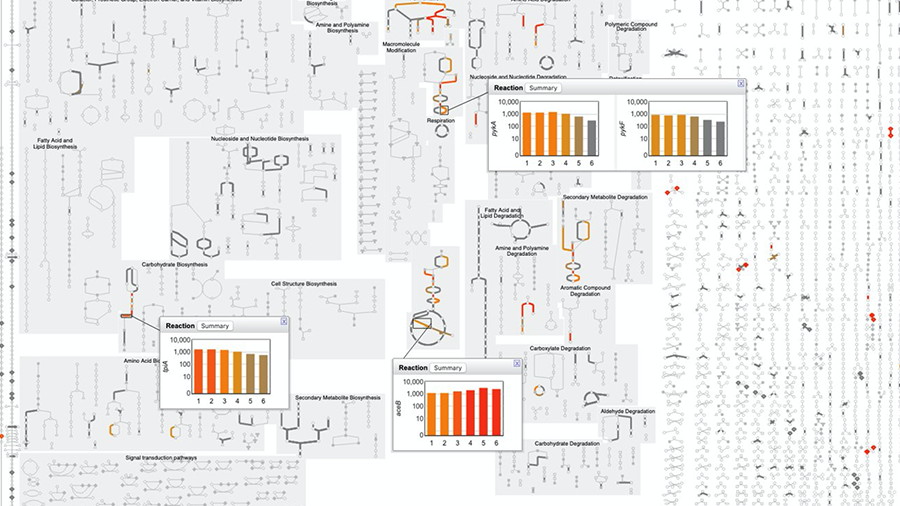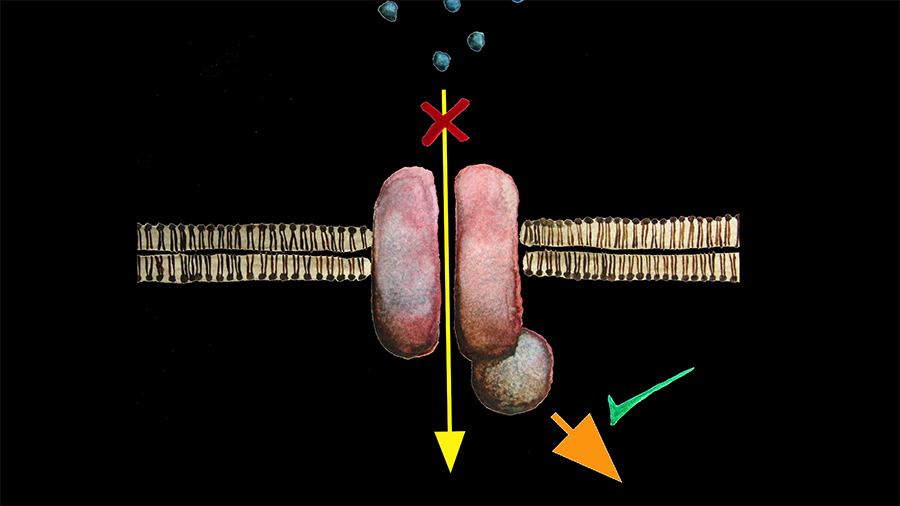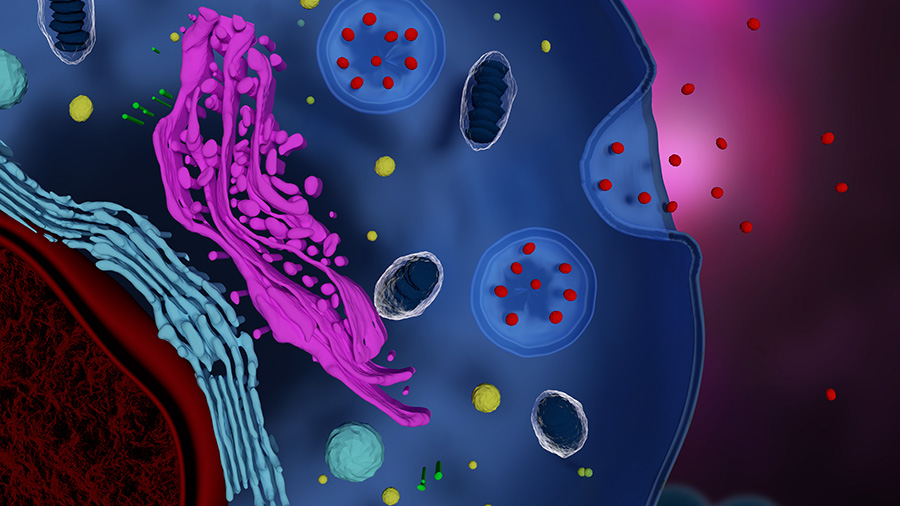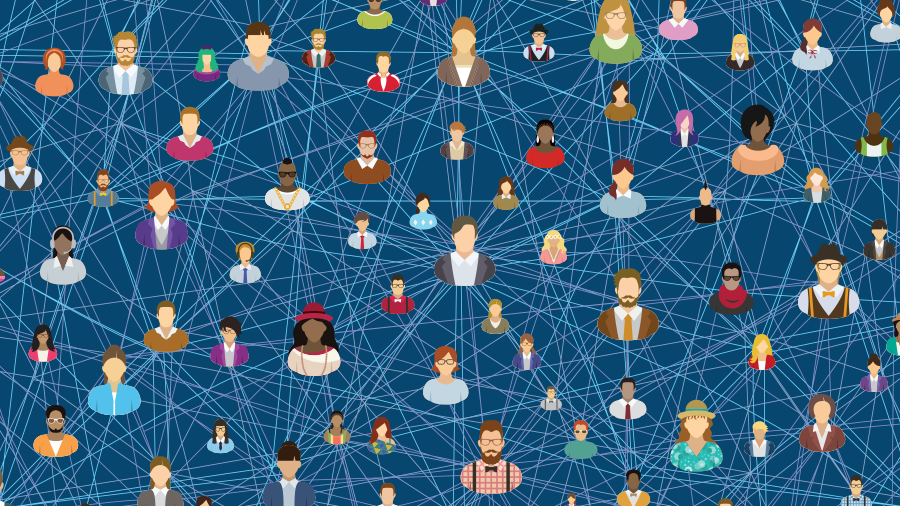Calendar of events, awards and opportunities
Every week, we update this list with new meetings, awards, scholarships and events to help you advance your career. If you’d like us to feature something that you’re offering to the bioscience community, email us with the subject line “For calendar.” ASBMB members’ offerings take priority, and we do not promote products/services. Learn how to advertise in ASBMB Today.
May 31: Application deadline for IUBMB editorship
The International Union of Biochemistry and Molecular Biology is seeking a new editor for its journal Biotechnology and Applied Biochemistry. The editor has a three-year term. Applications are due May 31. See the job description and application instructions.

June 7: Insomnia biomarkers awards for junior researchers
The American Academy of Sleep Medicine Foundation has established a new award program for junior researchers. The Focused Projects Award for Junior Investigators is for scientists pursuing basic, translational, clinical or population sleep and circadian science. The work should be related to the identification, evaluation or validation of insomnia biomarkers. The $50,000 award provides seed funding for mentored research projects. We're told the AASM Foundation hopes to issue three awards. The deadline is June 7. Learn more.
June 8: Queering STEM event by ASCB
The LGBTQ+ Committee of the American Society for Cell Biology has a free event scheduled for 4 p.m. Eastern on June 8. It's part of ASCB's Pride Month observance. They'll host Lauren Esposito, founder of 500 Queer Scientists. Learn more and register.
June 10: Webinar on renovating an occupied lab
Lab Manager has a webinar at 1 p.m. Eastern on June 10 about renovating an existing space when you still need to get work done in it. The webinar will cover planning the reno to limit the amount of downtime it requires, anticipating future needs, considering sustainability and recommissioning equipment to hit the ground running again. Register.
June 15: edX's Inclusive STEM Teaching Project
Boston University is running this free course on the edX platform to "advance the awareness, self-efficacy, and the ability of faculty, postdocs, and doctoral students to cultivate inclusive STEM learning environments for all their students and to develop themselves as reflective, inclusive practitioners." This six-week course runs through Aug. 1. Learn more.

June 16: Metabolic reconstruction, modeling and omics data analysis through BioCyc
The first part of this free bioinformatics workshop will provide a tutorial for using the BioCyc pathway/genome web portal and Pathway Tools software developed by the Bioinformatics Research Group at SRI International. In the second part of the workshop, Jeremy Zucker of the Pacific Northwest National Lab will give a talk about Pathway Tools-based metabolic reconstructions. It is titled “AI-assisted metabolic and regulatory investigations of the circadian clock in the filamentous fungus Neurospora crassa.” Learn more.

June 20–25: Teaching science with big data
This international meeting guides faculty on how to teach using web-based, free-access large data sets. How big is "big data"? Data that is so large, fast or complex that it's difficult or impossible to process using traditional methods. Join us to learn these valuable teaching skills to prepare students for the future. Sponsored by the ASBMB and the International Union of Biochemistry and Molecular Biology. Registration and abstract information.

June 21: Flux-independent signaling by ionotropic receptors
Save the date for the virtual event "Flux-independent signaling by ionotropic receptors: Unforeseen roles and complexities" on June 21. The organizers say it will be of interest to neuroscientists, cell biologists, molecular biologists and biochemists, among others, involved in the study of cell physiology and function in health and disease. Read the event description and register.
GSA seminar series on gene function across organisms
The Genetics Society of America is hosting a free series of seminars from June through November exploring gene function across humans and model organisms. GSA's president, Hugo Bellen, explained the impetus for this series in an op-ed in May. He wrote, in part, "We believe that these seminars will be useful to investigators at all career stages and across different model organisms, as well as for human biologists. We hope this will add a new dimension to research, reveal unanticipated phenotypes, speed up discovery, allow new funding opportunities, and lead to the discovery of new fundamental aspects of biology." Below is the schedule of seminars. See the speakers and register here.
June 28 — Tackling human gene function in model organisms
July 26 — Matching interests across research teams: GeneMatcher and ModelMatcher
Aug. 23 — MARRVEL: Mining genetic and genomic data across model organisms and human
Sept. 20 — Mining model organism data in the Alliance of Genome Resources Portal
Oct. 4 — Monarch Initiative: Cross-species phenotype comparison for disease diagnosis and discovery
Nov. 1 — Unraveling the links between hereditary and viral microcephaly
July 20–21: Green Labs Digital Summit
Lab Manager is hosting a free two-day event about sustainable labs. If you're interested in greening your lab (reducing energy consumption and waste and optimizing processes), save the dates for presentations on such things as metrics for sustainability, net zero labs and long-term savings strategies. Learn more.

July 21–23: Extracellular vesicle studies: From benchtop to therapeutics
Extracellular vesicles are secreted, membrane-bound compartments containing DNA and cytoplasmic constituent molecules of all types that are thought to act as mediators of intercellular communication. They are classified by both size and location/mechanism of cellular origination. They are thought to be produced by an ever-expanding diversity of cell types and species. However, there is also considerable skepticism related to their existence and utility, as it can be difficult to isolate EVs since there is no EV-specific molecular marker to target. (Editor's note: See this ASBMB Today feature on EVs by former science writer Rajendrani Mukhopadhyay.)
A primary focus in recent years has been to describe the mechanisms of molecular sorting that would allow researchers to target proteins produced from exogenously introduced DNA to EVs for cellular secretion and uptake. The potential value of EVs to therapeutics is thought to be enormous, thanks to the role of EVs in cell–cell communication as a robust, native delivery vehicle.
This event will appeal to a broad audience, including molecular biologists, biochemists, biophysicists, secretion experts, cell–cell communication specialists, clinicians, physiologists and others. Submit an abstract by May 27. The early registration deadline is June 25, and the regular registration deadline is July 16. Visit the event homepage.
July 30: Deadline to apply for PALM fellowship
The Promoting Active Learning and Mentoring (PALM) Network is accepting applications from postdocs and faculty members who wish to learn about and get better at implementing evidence-based active learning. This program is supported by the National Science Foundation. During the COVID-19 pandemic, fellows and mentors will participate virtually. Learn more.
Aug. 31: FASEB BioArt contest entries due
Every year, the Federation of American Societies for Experimental Biology holds a competition featuring stellar scientific images and videos. Submissions are welcome from federally funded investigators/groups and members of constituent societies. Read the guidelines. Submissions are welcome beginning July 15. See past winning images.

Call for virtual scientific event proposals
The ASBMB provides members with a virtual platform to share scientific research and accomplishments and to discuss emerging topics and technologies with the BMB community.
The ASBMB will manage the technical aspects, market the event to tens of thousands of contacts and present the digital event live to a remote audience. Additional tools such as polling, Q&A, breakout rooms and post event Twitter chats may be used to facilitate maximum engagement.
Seminars are typically one to two hours long. A workshop or conference might be longer and even span several days.
Prospective organizers may submit proposals at any time. Decisions are usually made within four to six weeks.
Oct. 4: Deadline for NAS award nominations
The National Academy of Sciences is accepting nominations for its annual awards. The nominations are due in October, winners will be announced in January, and the ceremony will be held in April. See the list of available awards. Read the nominating instructions.
Oct. 30: Deadline to apply for PALM fellowship
The Promoting Active Learning and Mentoring (PALM) Network is accepting applications from postdocs and faculty members who wish to learn about and get better at implementing evidence-based active learning. This program is supported by the National Science Foundation. During the COVID-19 pandemic, fellows and mentors will participate virtually. Learn more.
Enjoy reading ASBMB Today?
Become a member to receive the print edition four times a year and the digital edition monthly.
Learn moreFeatured jobs
from the ASBMB career center
Get the latest from ASBMB Today
Enter your email address, and we’ll send you a weekly email with recent articles, interviews and more.
Latest in Careers
Careers highlights or most popular articles

Upcoming opportunities
ASBMB's PROLAB award helps graduate students and postdoctoral fellows spend up to six months in U.S. or Canadian labs.

From humble beginnings to unlocking lysosomal secrets
Monther Abu–Remaileh will receive the ASBMB’s 2026 Walter A. Shaw Young Investigator Award in Lipid Research at the ASBMB Annual Meeting, March 7-10 in Washington, D.C.

Chemistry meets biology to thwart parasites
Margaret Phillips will receive the Alice and C. C. Wang Award in Molecular Parasitology at the ASBMB Annual Meeting, March 7-10 in Washington, D.C.

Decoding how bacteria flip host’s molecular switches
Kim Orth will receive the Earl and Thressa Stadtman Distinguished Scientists Award at the ASBMB Annual Meeting, March 7–10, just outside of Washington, D.C.

Defining JNKs: Targets for drug discovery
Roger Davis will receive the Bert and Natalie Vallee Award in Biomedical Science at the ASBMB Annual Meeting, March 7–10, just outside of Washington, D.C.

Upcoming opportunities
No matter where you are in your career and what future path you aspire to, everyone needs leadership skills. Join ASBMB for practical strategies for building and practicing leadership skills.
